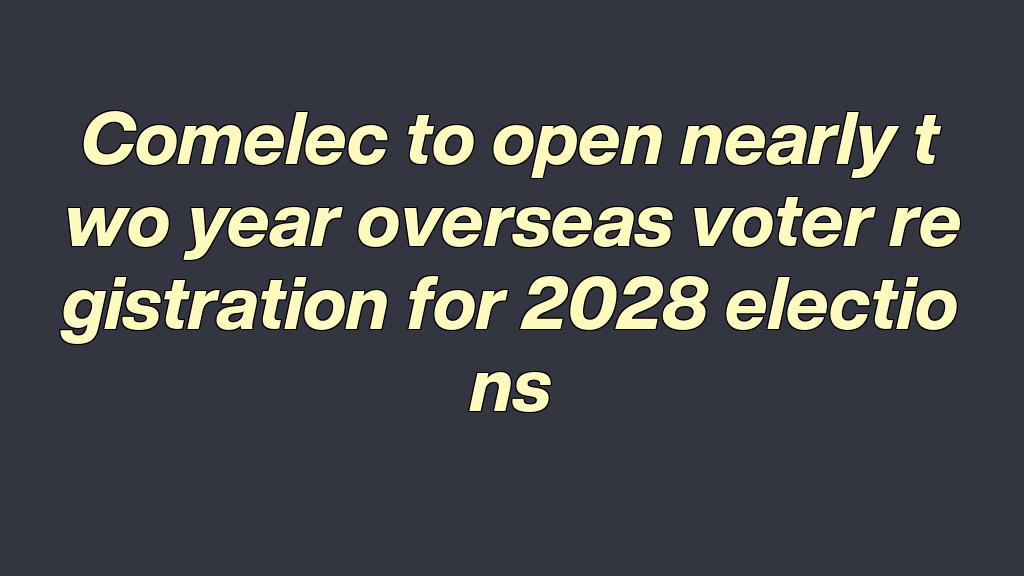MANILA, Philippines — The Commission on Elections (Comelec) announced that overseas voter registration for the 2028 national and local polls will begin on Dec. 1, 2025, giving millions of Filipinos abroad almost two years to enlist.
Comelec to open nearly two-year overseas voter registration for 2028 elections, This news data comes from:http://www.052298.com
In an advisory posted on social media, the poll body said the registration period would run until Sept. 30, 2027. During this time, Filipinos overseas may apply for new registration, transfer of records, reactivation, correction of entries, change of address, reinclusion, or certification.
Applicants are required to present a valid Philippine passport, a post-issued certification, or a certified true copy of the order approving their retention or reacquisition of Philippine citizenship. Seafarers may also submit a photocopy of their Seafarer’s Identification and Record Book.
Applications may be filed at Philippine embassies, consulates, designated registration centers abroad, the Comelec Office for Overseas Voting in Manila, or at local field registration centers in the Philippines during office hours.
The last overseas registration period ran from Dec. 9, 2022 to Sept. 30, 2024. For the May 2025 elections, Comelec recorded about 1.241 million registered overseas voters, spread across the Middle East, North America, Asia and Oceania, and Africa.

- Local execs defend law on term of office
- Modi, Ishiba agree to boost economic ties
- Villanueva: Regularize contractual govt workers
- Sara mum, but brother thinks Torre removal due to PNP's 'internal conflicts'
- Comelec probes 15 contractors for illegal campaign donations
- Sara’s claims that corruption probe could be done in one day 'absolutely preposterous' – Palace
- Government work, classes on Tuesday suspended due to bad weather
- Hontiveros pushes P15,000 salary hike for teachers
- Public Works chief to press criminal charges against Bulacan engineer
- Chinese research vessel spotted near Philippine coast but 'goes dark' after, says maritime expert